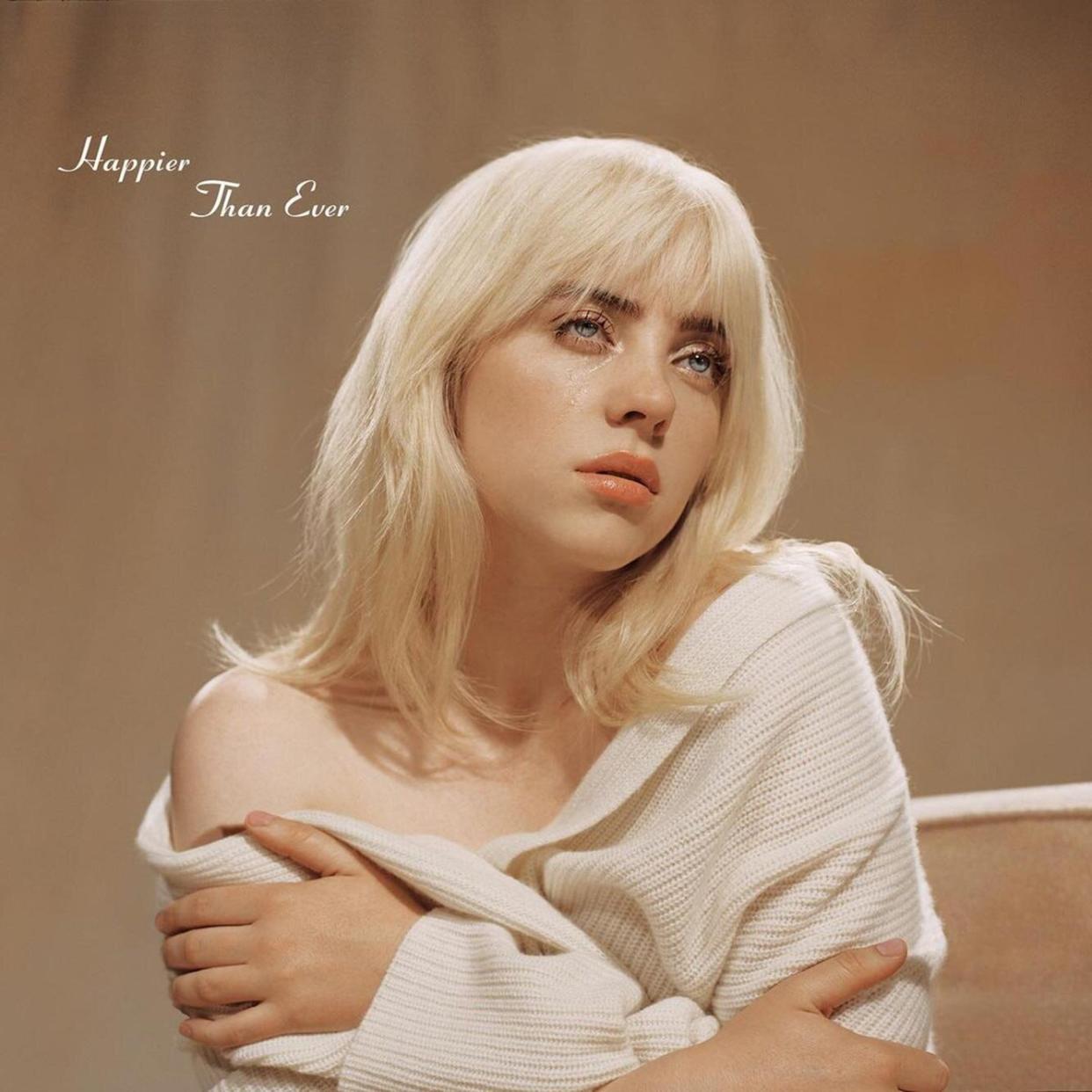Happier Than Ever review: Billie Eilish grows up, slows down on her intimate sophomore album

Billie Eilish/Instagram The cover of Billie Eilish's 'Happier Than Ever'
When Billie Eilish won Record of the Year at the Grammys this past March, she used nearly all of her acceptance speech to lay the prize at Megan Thee Stallion's feet instead: "You deserve this," she insisted, addressing a masked Stallion from the stage. "You had a year that I think is untoppable. You are a queen. I want to cry thinking about how much I love you."
To be fair, it was Eilish's seventh statuette in two years; she might not have even missed one more on the mantel. But it also spoke to the strange arc of her brief, extraordinary career — the international superstar who is also an unabashed fangirl; the teenage millionaire who still happily lives at home; the green-haired pop goddess whose itchy, glitchy bedroom pop speaks as much to the freaks and outcasts as it does to the cool kids just looking for another TikTok bop to dance to.
The singer has since gone blonde, her acid ombré chopped into a movie-star platinum shag. And in May, as the entire internet did not fail to note, she chose to pose for the cover of British Vogue in full bombshell mode, shedding the protective layers of her famously oversize wardrobe for pinup-girl satins and latex. But even in that, Eilish only seemed to be playing with the ideas and expectations of a pop star riding out the next news cycle — or really, just having the kind of fun that any 19-year-old can and should with fashion and identity.
Except of course she's not any 19-year-old, a fact that is central to her sophomore album, Happier Than Ever. "Do you know me, really know me?" she asks over the sparse stuttering hum of "Not My Responsibility." "You have opinions about my opinions/About my music, about my clothes, about my body…. I feel you watching, always/And nothing I do goes unseen."
The fact that the Eilish who made her entire 2019 debut, When We All Fall Asleep Where Do We Go?, in her childhood room with her brother is not the same girl in 2021 shouldn't come as news; that was two years and 14 billion streams ago. Happier is threaded through with old-soul reflections on the fame game and her place in it: "Things I once enjoyed just keep me employed now/Things I'm longing for, someday I'll be bored of," she sighs on the coolly pulsating opener, "Getting Older." The jittery, syncopated "NDA" unfurls matter-of-fact verses about paying for extra security to keep stalkers at bay and buying a secret house when she turned 17 ("Haven't had a party since I got the keys").
On both those songs and elsewhere, though, Eilish alludes to something that can hardly be called a champagne problem: the abusive behavior of a significantly older lover. "Your Power" shuffles along like a campfire lullaby, but the lyrics offer a stinging indictment of a man who preyed on their age difference and excelled at emotional manipulation. By "Lost Cause" at least she's gained the upper hand, acknowledging the pain of being devoted to someone who can't pretend to care and putting him in the rearview at the same time; a rebel without a cause (or a job).
Like her debut, Happier was produced at home by Eilish's brother Finneas, and it lives largely in a zone that can probably best be called High Mood — pretty washes of chilly percussion and late-night synths brushing up against the warmer, more organic plunk of the occasional acoustic guitar or piano. The hooks are less immediately earworm-y than stomping When We All Fall anthems like "Bad Guy" or "Bury a Friend"; only rarely do the BPMs bump up high enough to transfer to the dance floor.
Mostly, the beats are there to frame Eilish's singular voice: a smoky, silvery instrument that swoops and dips between vulnerability and bravado, jazz-bar bossa nova and confessional Gen Z poetry. The title track, a long unapologetic goodbye to an ex, begins with an acoustic strum so sparse it's hardly a sketch. But then the song, slotted second to last, becomes something else: a crashing rock-opera dirge that feels like three-chord catharsis for everything that's come before it — and a useful reminder of all the unmarked moments and muses in her very young life still to come. Grade: B+
Related content:

 Yahoo Movies
Yahoo Movies 
